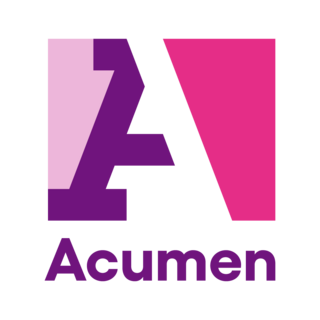This article needs additional citations for verification .(November 2024) |
Some market segments are referred to by acronyms and initials:
This article needs additional citations for verification .(November 2024) |
Some market segments are referred to by acronyms and initials:
Outsourcing is a business practice in which companies use external providers to carry out business processes, that would otherwise be handled internally. Outsourcing sometimes involves transferring employees and assets from one firm to another.
In marketing, market segmentation or customer segmentation is the process of dividing a consumer or business market into meaningful sub-groups of current or potential customers known as segments. Its purpose is to identify profitable and growing segments that a company can target with distinct marketing strategies.
Small and medium-sized enterprises (SMEs) or small and medium-sized businesses (SMBs) are businesses whose personnel and revenue numbers fall below certain limits. The abbreviation "SME" is used by many national agencies and international organizations such as the World Bank, the OECD, European Union, the United Nations, and the World Trade Organization (WTO).
Business software is any software or set of computer programs used by business users to perform various business functions. These business applications are used to increase productivity, measure productivity, and perform other business functions accurately.
Business Process Outsourcing (BPO) is a subset of outsourcing that involves the contracting of the operations and responsibilities of a specific business process to a second-party service provider. Originally, this was associated with manufacturing firms, such as Coca-Cola that outsourced large segments of its supply chain.
Managed services is the practice of outsourcing the responsibility for maintaining, and anticipating need for, a range of processes and functions, ostensibly for the purpose of improved operations and reduced budgetary expenditures through the reduction of directly-employed staff. It is an alternative to the break/fix or on-demand outsourcing model where the service provider performs on-demand services and bills the customer only for the work done. The external organization is referred to as a managed service(s) provider (MSP).
A consulting firm or simply consultancy is a professional service firm that provides expertise and specialised labour for a fee, through the use of consultants. Consulting firms may have one employee or thousands; they may consult in a broad range of domains, for example, management, engineering, and so on.
Shared services is the provision of a service by one part of an organization or group where that service had previously been found in more than one part of the organization or group. Thus the funding and resourcing of the service is shared and the providing department effectively becomes an internal service provider. The key here is the idea of 'sharing' within an organization or group. This sharing needs to fundamentally include shared accountability of results by the unit from where the work is migrated to the provider. The provider, on the other hand, needs to ensure that the agreed results are delivered based on defined measures.
Knowledge process outsourcing (KPO) describes the outsourcing of core information-related business activities which are competitively important or form an integral part of a company's value chain. KPO requires advanced analytical and technical skills as well as a high degree of specialist expertise.
Visma (acronym for Visual management) is a privately held company headquartered in Oslo, Norway, that provides cloud accounting, payroll, invoicing, and HR business software products. The majority of the company is owned by HgCapital, a private equity firm.

One of the most dynamic and fastest growing sectors in the Philippines is the information technology–business process outsourcing (IT-BPO) industry. The industry is composed of eight sub-sectors, namely, knowledge process outsourcing and back offices, animation, call centers, software development, game development, engineering design, and medical transcription. The IT-BPO industry plays a major role in the country's growth and development.
The target audience is the intended audience or readership of a publication, advertisement, or other message catered specifically to the previously intended audience. In marketing and advertising, the target audience is a particular group of consumer within the predetermined target market, identified as the targets or recipients for a particular advertisement or message.

Acumen is a nonprofit impact investment fund based in the U.S. that focuses on investing in social enterprises that serve low-income individuals. Acumen was founded in April 2001 by Jacqueline Novogratz. It aims to demonstrate that small amounts of philanthropic capital, combined with business acumen, can result in thriving enterprises that serve vast numbers of the poor. Over the years, Acumen has invested $154.4 million in 167 companies and has had a successful track record in sourcing and executing investment opportunities in the clean energy, education, financial inclusion, health care and agriculture sectors.
In computing, managed security services (MSS) are network security services that have been outsourced to a service provider. A company providing such a service is a managed security service provider (MSSP) The roots of MSSPs are in the Internet Service Providers (ISPs) in the mid to late 1990s. Initially, ISP(s) would sell customers a firewall appliance, as customer premises equipment (CPE), and for an additional fee would manage the customer-owned firewall over a dial-up connection.
Swisscontact – Swiss Foundation for Technical Cooperation is a Swiss non-profit-organisation, which carries out projects aiming at reducing poverty in developing and transition countries by private sector development. It has been founded in 1959 as a politically and denominationally neutral organisation and has 60 employees in Switzerland and approximately 1,400 staff abroad. The main fields of activity are fostering skills development, small and medium enterprises, financial services and resource efficiency.

Electronic Data Systems (EDS) was an American multinational information technology equipment and services company headquartered in Plano, Texas, which was founded in 1962 by Ross Perot. The company was a subsidiary of General Motors from 1984 until it was spun off in 1996. EDS was acquired by Hewlett-Packard in 2008.
Small and medium enterprises in Mexico, generally called PyMEs, are an important segment of the Mexican economy. They are classified in two types of small and medium enterprises: family businesses and non-family businesses.
Impact sourcing, also known as socially responsible outsourcing, refers to an arm of the business process outsourcing (BPO) industry. It employs people at the base of the pyramid or socioeconomically disadvantaged individuals as principal workers in BPO centers to provide high-quality, information-based services to domestic and international clients. The traditional BPO sector is typically associated with high-end, high-contact functions like call centers, which require significant education and language literacy levels. The impact sourcing sector focuses on utilizing workers from poor and vulnerable communities to perform functions with lower and moderate skill requirements such as scanning documents, data-entry work, data verification and cleaning, video tagging, and microwork.

Foiwe Info Global Solutions Pvt Ltd is an Indian multinational information technology company that provides business consulting, information technology and outsourcing services. The company is founded in Bangalore and also headquartered in Bangalore, India with operations in two countries. The company began in 2010 as a Limited Liability Partnership company and was converted to a Private Limited company in 2019. The company is registered with Ministry of Corporate Affairs, India.

The fast-moving consumer goods (FMCG) industry or consumer packaged goods (CPG) industry is mainly responsible for producing, distributing and marketing fast-moving consumer goods. The FMCG industry is the fourth largest sector in the Indian economy. Household and personal care products accounts for 50% of the sales in the industry, healthcare accounts for 31-32% and food and beverage accounts for the remaining 18-19%.